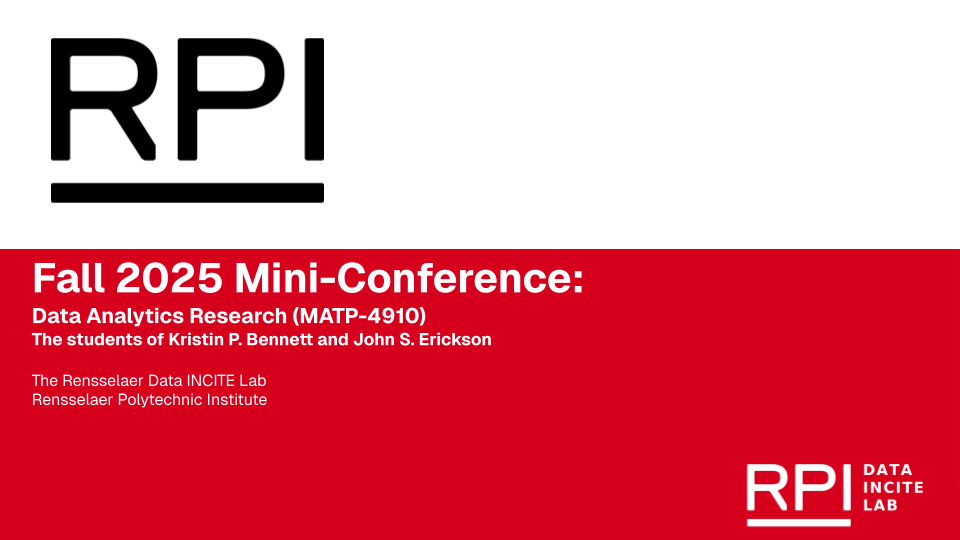The Floating Solar Explorer
Risky Business? Deep Dives into DeFi
"R Micro-bootcamp: Getting Started with R & RStudio!" RPIRates Monthly Meeting (Weds, 21 Jan, 6p, AE217)
Data Analytics Research (MATP-4910) Final Mini-Conference (Fall 2025)

Friends and family are cordially invited to:
The Fall 2025 Data Analytics Research Final Mini-Conference
Featuring the students of MATP-4910 Data Analytics Research (DAR) Fall 2025.
Supervised by Prof. Kristin P. Bennett and Dr. John S. Erickson.
Agenda:
"Qiskit_session and the initialize and statevector functions" RPI Quantum Users' Group Meeting (Weds, 12 Nov, 4p, AE217)
The next meeting of the Quantum Users’ Group will be held at 4pm on Wednesday November 12 in AE 217. We will discuss Qiskit_session and the initialize and statevector functions plus topics of concern from the attendees.
"LLMs and R: How Posit is Making it Easy!" RPIrates Monthly Meeting (Weds, 12 Nov, 6p, AE217)
"LLMs and R: How Posit is Making it Easy!"
RPIrates Monthly Meeting (Weds, 12 Nov, 6p, AE217)
Event page: https://bit.ly/4qDvr3E
Video: Webex archive
Slides: Slides link
"An Earth Science-based inversion problem using gradient descent optimization" RPI Quantum Users' Group Meeting (Weds, 15 Oct, 4p, AE214)
"A Hitchhiker's Guide to 'R for Data Science (2e)'" RPIrates Monthly Meeting (Weds, 15 Oct, 6p, AE217)
"A Hitchhiker's Guide to 'R for Data Science (2e)'" RPIrates Monthly Meeting (Weds, 15 Oct, 6p, AE217)
Video: https://youtu.be/8sN5IQpHIi4
Slides: https://idea.rpi.edu/sites/default/files/2025-10/RPIrates_15Oct2025.pdf
